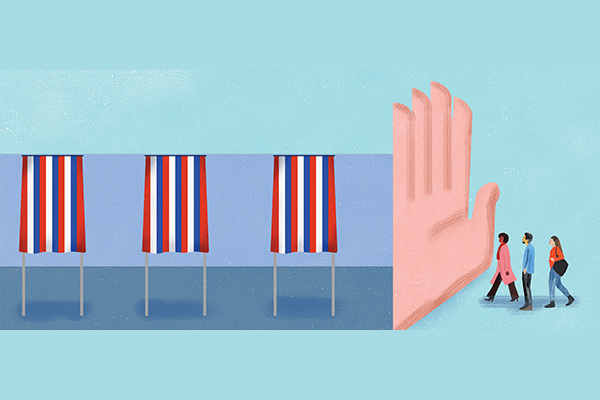ON TUESDAY, NOV. 8, control of federal spending and legislation will be at stake with every seat in the House of Representatives up for election along with a third of the U.S. Senate, not to mention countless offices at the state and local level. Many of these races are critical for determining what the next few years will look like in the United States and beyond.
Christians should resist single-issue voting and instead apply our faith across a broad range of issues that impact human dignity and human flourishing. Our faith should inform and shape how we evaluate candidates and cast our ballots. While many important issues will be on the ballot this midterm—from inflation and the state of our economy to reproductive health, climate justice, our continued response to the COVID-19 pandemic, and a range of racial justice issues, to name just a few—increasingly the fate of democracy itself will be on the ballot. The challenge is that democracy is not often treated as a top-tier issue and can be easily taken for granted. As the House committee investigating the Jan. 6 insurrection has illuminated with sobering and chilling clarity, our democracy is not a given. A criminal conspiracy by former President Donald Trump and his allies to overturn the 2020 election and the ongoing efforts to erect new barriers to the right to vote have damaged and continue to imperil our democracy. In the face of these threats, it is important that the midterm election becomes a referendum on whether candidates are committed to protecting and strengthening a more inclusive and just multiracial democracy.
Many state legislatures have recently passed laws making it easier to interfere with and subvert election results, which alongside voter suppression directly threatens the health of U.S. democracy.
Read the Full Article

